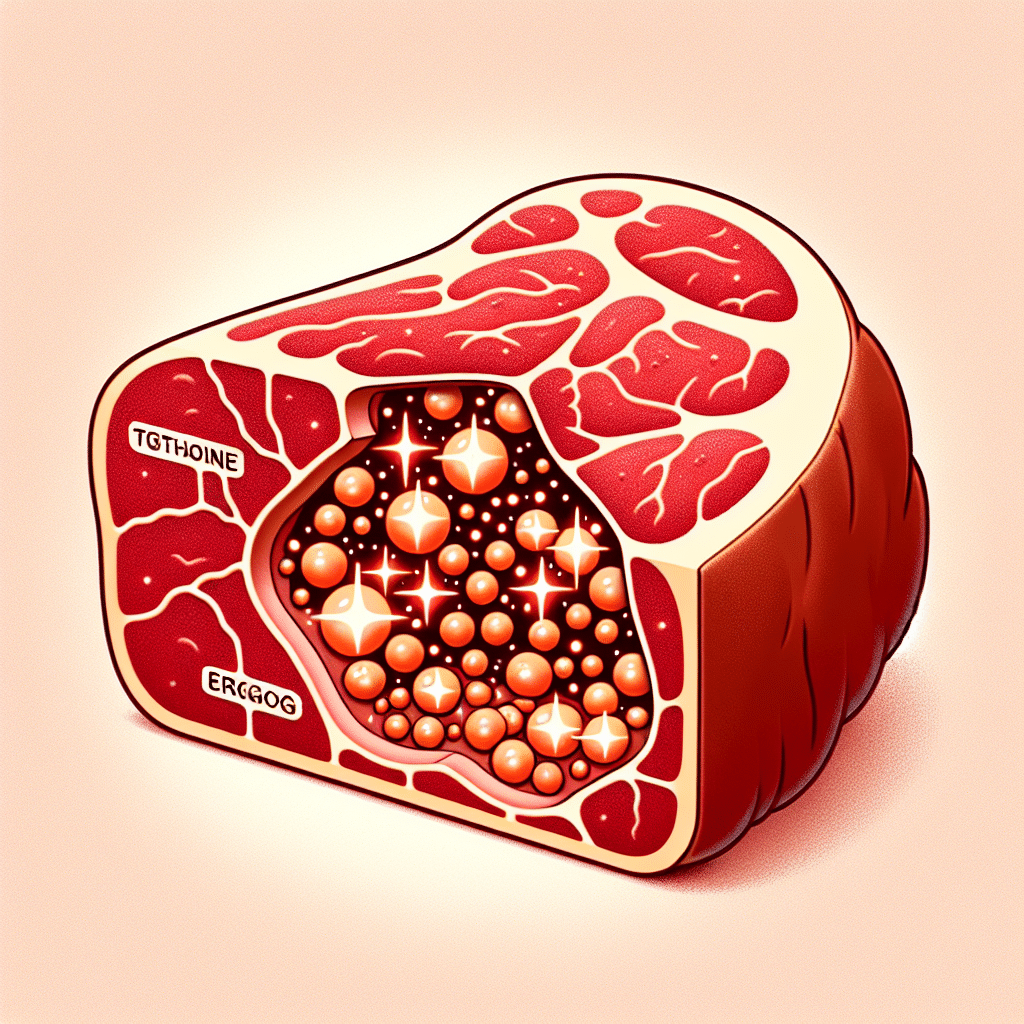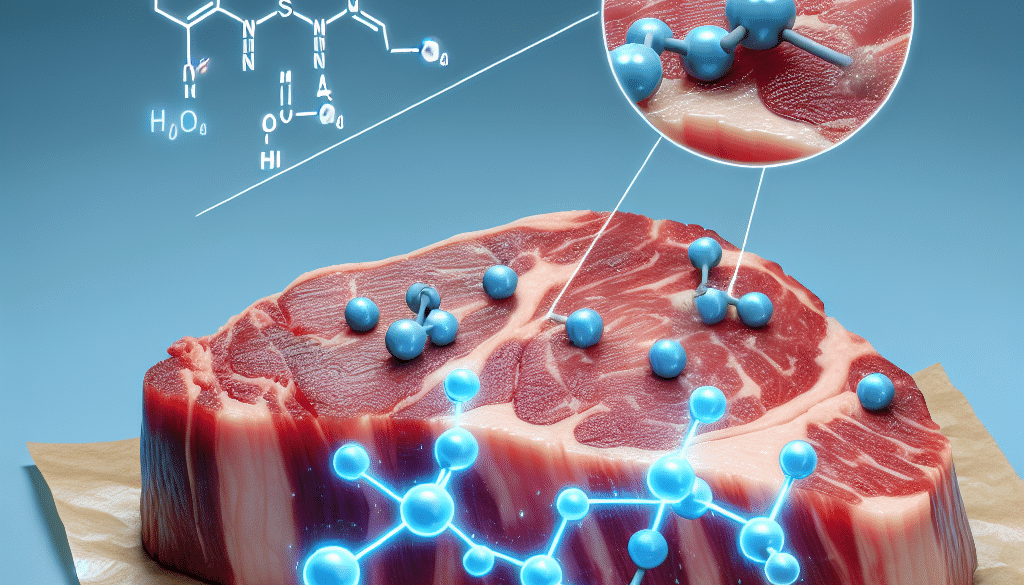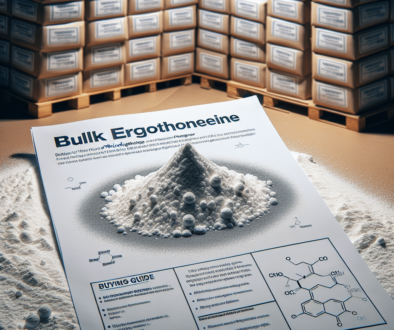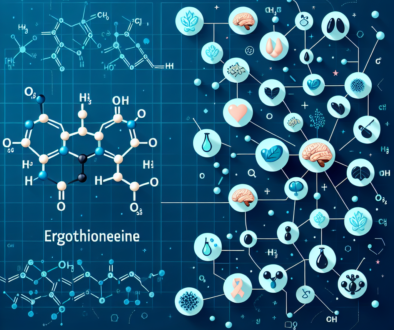Does meat contain ergothioneine? Find out
Table of Contents
- Ergothioneine in Meat: Unveiling Its Presence and Benefits
- Understanding Ergothioneine: A Potent Antioxidant
- Is Ergothioneine Found in Meat?
- Meat Sources Rich in Ergothioneine
- Factors Affecting Ergothioneine Levels in Meat
- Health Implications of Ergothioneine in Meat
- Case Studies and Research Findings
- Ergothioneine Beyond Meat: Other Dietary Sources
- Conclusion: The Significance of Ergothioneine in Meat
- Discover ETprotein’s High-Quality Protein Products
Ergothioneine in Meat: Unveiling Its Presence and Benefits

Ergothioneine, a naturally occurring amino acid, has garnered significant attention due to its potential antioxidant properties and role in human health. As consumers become increasingly health-conscious, understanding the dietary sources of ergothioneine, particularly its presence in meat, is essential. This article delves into the science behind ergothioneine, its occurrence in various meat sources, and the implications for our diet and well-being.
Understanding Ergothioneine: A Potent Antioxidant
Ergothioneine (ET) is a sulfur-containing amino acid that is not synthesized by the human body and must be obtained through diet. It is recognized for its antioxidant capabilities, which may protect cells from oxidative damage, a contributing factor to aging and various diseases. Ergothioneine is unique in that it has a specific transporter in the human body, suggesting a biological significance that is still being explored by researchers.
Is Ergothioneine Found in Meat?
Yes, ergothioneine is found in meat. It is present in varying concentrations across different types of meat, with organ meats such as liver and kidney typically having higher levels. The content of ergothioneine in meat is influenced by factors such as the animal’s diet, age, and the specific cut of meat.
Meat Sources Rich in Ergothioneine
- Beef Liver: Known for its nutrient density, beef liver is also a rich source of ergothioneine.
- Pork: Cuts of pork, especially the liver, contain notable amounts of ergothioneine.
- Chicken: While lower than organ meats, chicken still provides a dietary source of ergothioneine, particularly in the liver and thighs.
- Lamb: Lamb meat, including the liver, is another source where ergothioneine can be found.
Factors Affecting Ergothioneine Levels in Meat
- Diet of the Livestock: Animals fed with ergothioneine-rich diets, such as those including certain mushrooms or grains, may have higher levels of this amino acid in their meat.
- Processing and Cooking: The way meat is processed and cooked can impact the ergothioneine content, with some studies suggesting that certain cooking methods may reduce its levels.
- Storage: The storage conditions of meat, including temperature and duration, may also affect the stability of ergothioneine.
Health Implications of Ergothioneine in Meat
Consuming meat with ergothioneine may have several health benefits. Research has linked ergothioneine to potential protective effects against oxidative stress-related conditions, such as cardiovascular diseases, neurodegenerative disorders, and certain types of cancer. However, it is important to balance meat consumption with other sources of ergothioneine, such as mushrooms and grains, to maintain a varied and healthy diet.
Case Studies and Research Findings
Several studies have investigated the role of ergothioneine in health. For instance, research has shown that higher levels of ergothioneine in the diet are associated with reduced markers of oxidative damage and inflammation. Another study found that ergothioneine might play a role in cognitive health, with higher dietary intake correlating with better cognitive performance in older adults.
Ergothioneine Beyond Meat: Other Dietary Sources
While meat is a source of ergothioneine, it is not the only one. Other dietary sources include:
- Mushrooms: Particularly high in ergothioneine, especially varieties like shiitake, oyster, and king oyster.
- Grains: Whole grains such as oats and barley contain ergothioneine.
- Beans and Legumes: Certain beans and legumes have been found to contain this amino acid.
It is beneficial to include a variety of these foods in your diet to ensure an adequate intake of ergothioneine.
Conclusion: The Significance of Ergothioneine in Meat
In conclusion, meat is a valuable source of ergothioneine, particularly organ meats. The presence of this amino acid in meat contributes to its nutritional profile and potential health benefits. While research continues to uncover the full impact of ergothioneine on human health, incorporating meat along with other ergothioneine-rich foods into a balanced diet can be part of a strategy to harness its antioxidant properties. As with all dietary components, moderation and variety are key to obtaining the benefits while minimizing potential risks associated with excessive meat consumption.
Discover ETprotein’s High-Quality Protein Products
If you’re looking to enhance your diet with high-quality protein sources, consider exploring ETprotein’s range of products. ETprotein offers a variety of organic bulk vegan proteins that cater to different dietary needs and preferences. Their product lineup includes:
- Organic rice protein
- Clear rice protein
- Pea protein
- Clear pea protein
- Watermelon seed protein
- Pumpkin seed protein
- Sunflower seed protein
- Mung bean protein
- Peanut protein
In addition to these plant-based proteins, ETprotein also supplies L-(+)-Ergothioneine in various grades suitable for the nutraceutical, pharmaceutical, cosmeceutical, and food and beverage industries. With a commitment to quality and customer satisfaction, ETprotein is a trusted partner for your protein needs.
About ETprotein:
ETprotein, a reputable protein and L-(+)-Ergothioneine (EGT) Chinese factory manufacturer and supplier, is renowned for producing, stocking, exporting, and delivering the highest quality organic bulk vegan proteins and L-(+)-Ergothioneine. They include Organic rice protein, clear rice protein, pea protein, clear pea protein, watermelon seed protein, pumpkin seed protein, sunflower seed protein, mung bean protein, peanut protein, and L-(+)-Ergothioneine EGT Pharmaceutical grade, L-(+)-Ergothioneine EGT food grade, L-(+)-Ergothioneine EGT cosmetic grade, L-(+)-Ergothioneine EGT reference grade and L-(+)-Ergothioneine EGT standard. Their offerings, characterized by a neutral taste, non-GMO, allergen-free attributes, with L-(+)-Ergothioneine purity over 98%, 99%, cater to a diverse range of industries. They serve nutraceutical, pharmaceutical, cosmeceutical, veterinary, as well as food and beverage finished product distributors, traders, and manufacturers across Europe, USA, Canada, Australia, Thailand, Japan, Korea, Brazil, and Chile, among others.
ETprotein specialization includes exporting and delivering tailor-made protein powder and finished nutritional supplements. Their extensive product range covers sectors like Food and Beverage, Sports Nutrition, Weight Management, Dietary Supplements, Health and Wellness Products, and Infant Formula, ensuring comprehensive solutions to meet all your protein needs.
As a trusted company by leading global food and beverage brands and Fortune 500 companies, ETprotein reinforces China’s reputation in the global arena. For more information or to sample their products, please contact them and email sales(at)ETprotein.com today.












